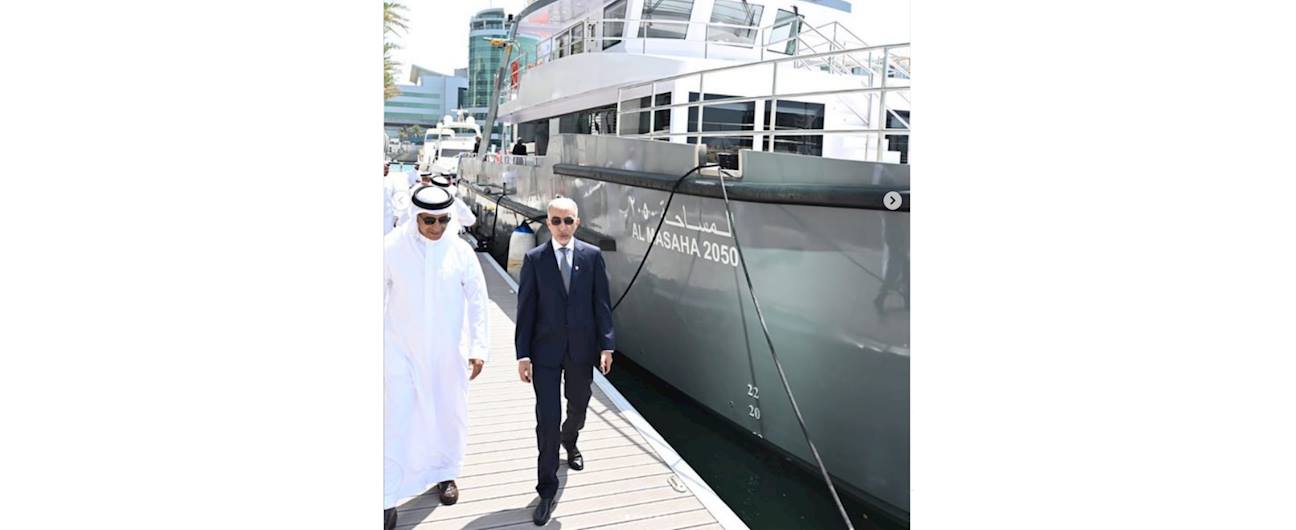26 September, 2025 The President of the Survey and Land Registration Bureau and the Minister of Works pay a visit to the Survey Vessel 2050.
His Excellency Eng. Bassim bin Yaqoub Al Hamer, President of the Survey and Land Registration Bureau, and His Excellency Eng. Ibrahim bin Hassan Al Hawaj, Minister of Works, conducted a field visit to the advanced research vessel Survey 2050, accompanied by a number of officials, to review its capabilities in supporting the development sectors of the Kingdom of Bahrain.
The President of the Survey and Land Registration Bureau affirmed that the visit comes as part of a comprehensive plan set by the Bureau to enhance partnership and coordination with the relevant authorities. This contributes to showcasing the vessel’s advanced capabilities and expanding the scope of its utilization in national development projects, natural resource management, and urban development initiatives, while also supporting strategic decision-making related to sustainable development. He further emphasized the Bureau’s commitment to continuing these efforts and building fruitful partnerships that open new horizons to achieve the desired goals.
For his part, His Excellency Eng. Ibrahim bin Hassan Al Hawaj, Minister of Works, praised the strategic value of the Survey 2050 project for the national infrastructure. He added that the vessel’s advanced capabilities will provide the concerned authorities with accurate data on seabed characteristics and marine sand resources, thereby enhancing the efficiency of planning and implementing coastal and marine infrastructure projects, while ensuring compliance with the highest environmental standards and the protection of natural resources.
During the visit, the Minister of Works listened to a detailed presentation on the vessel’s modern equipment, which represents a qualitative leap in the field of marine surveys and spatial data management. He was also briefed on 3D survey systems, geophysical monitoring devices, advanced laboratories for seabed analysis and sediment monitoring, in addition to artificial intelligence technologies integrated into the vessel’s systems to support data accuracy and accelerate processing.




